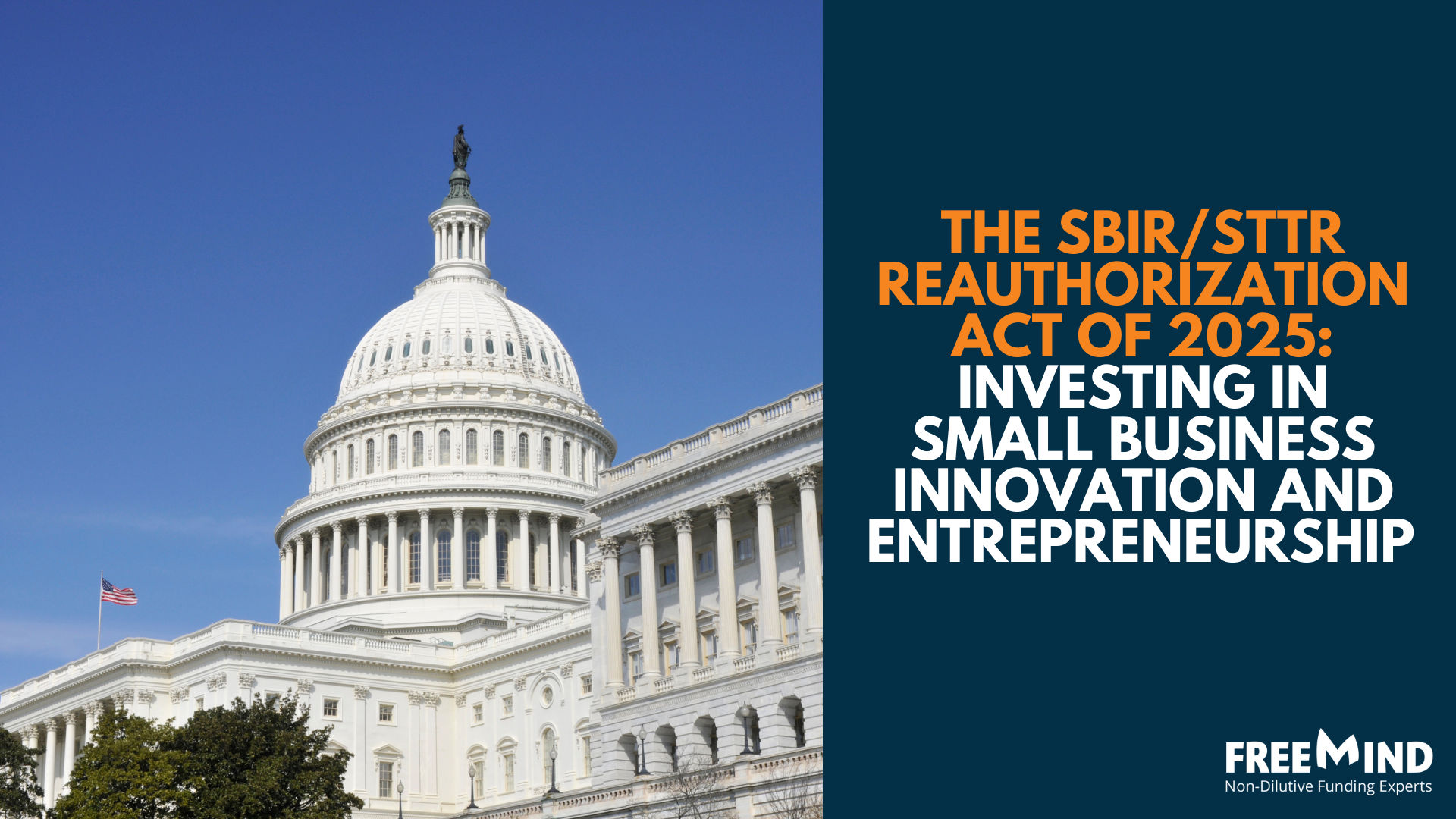Introduction:
The Small Business Innovation Research (SBIR) and Small Business Technology Transfer (STTR) programs have been pivotal in supporting small businesses across the United States in conducting cutting-edge research and development. Now, with the introduction of the SBIR/STTR Reauthorization Act of 2025, the future of these programs looks even brighter. Let’s delve into the details of this groundbreaking legislation and the impact it could have on fostering innovation and entrepreneurship.
Expanding and Making Permanent
The SBIR/STTR Reauthorization Act of 2025 aims to make these programs permanent, providing much-needed stability for small businesses and government agencies to continue their collaborative efforts. This legislation also seeks to increase research funding for small businesses and partnering research institutions (up to 7% of the total budget!) , ensuring that innovation continues to thrive.
Enhancing Competitiveness and Commercialization
By maintaining merit-based competition and dismantling barriers to participation, the SBIR/STTR programs can attract a more diverse pool of applicants. Strengthening commercialization efforts and broadening participation can lead to more SBIR/STTR-funded technologies reaching the marketplace, further fueling innovation and economic growth.
Endorsements and Support
The SBIR/STTR Reauthorization Act of 2025 has received widespread support from various organizations, including the Small Business Technology Council, the New England Innovation Alliance, MassMEDIC, VentureWell, and the National Small Business Association. These endorsements highlight the importance of investing in small business innovation and entrepreneurship to drive economic prosperity.
Championing Innovation
Senator Edward J. Markey, Ranking Member of the Senate Committee on Small Business and Entrepreneurship, has been a steadfast advocate for the SBIR and STTR programs. His leadership in introducing this reauthorization legislation underscores the critical role these programs play in advancing American innovation. With bipartisan support from Representative Nydia Velázquez and other stakeholders, the future of SBIR and STTR looks promising.
Conclusion
As the SBIR/STTR Reauthorization Act of 2025 seeks to enhance the competitiveness, stability, and impact of these programs, small businesses across the United States stand to benefit from increased support for research and innovation. By investing in small business innovation and entrepreneurship, we can foster a culture of creativity and advancement that will benefit us all.



